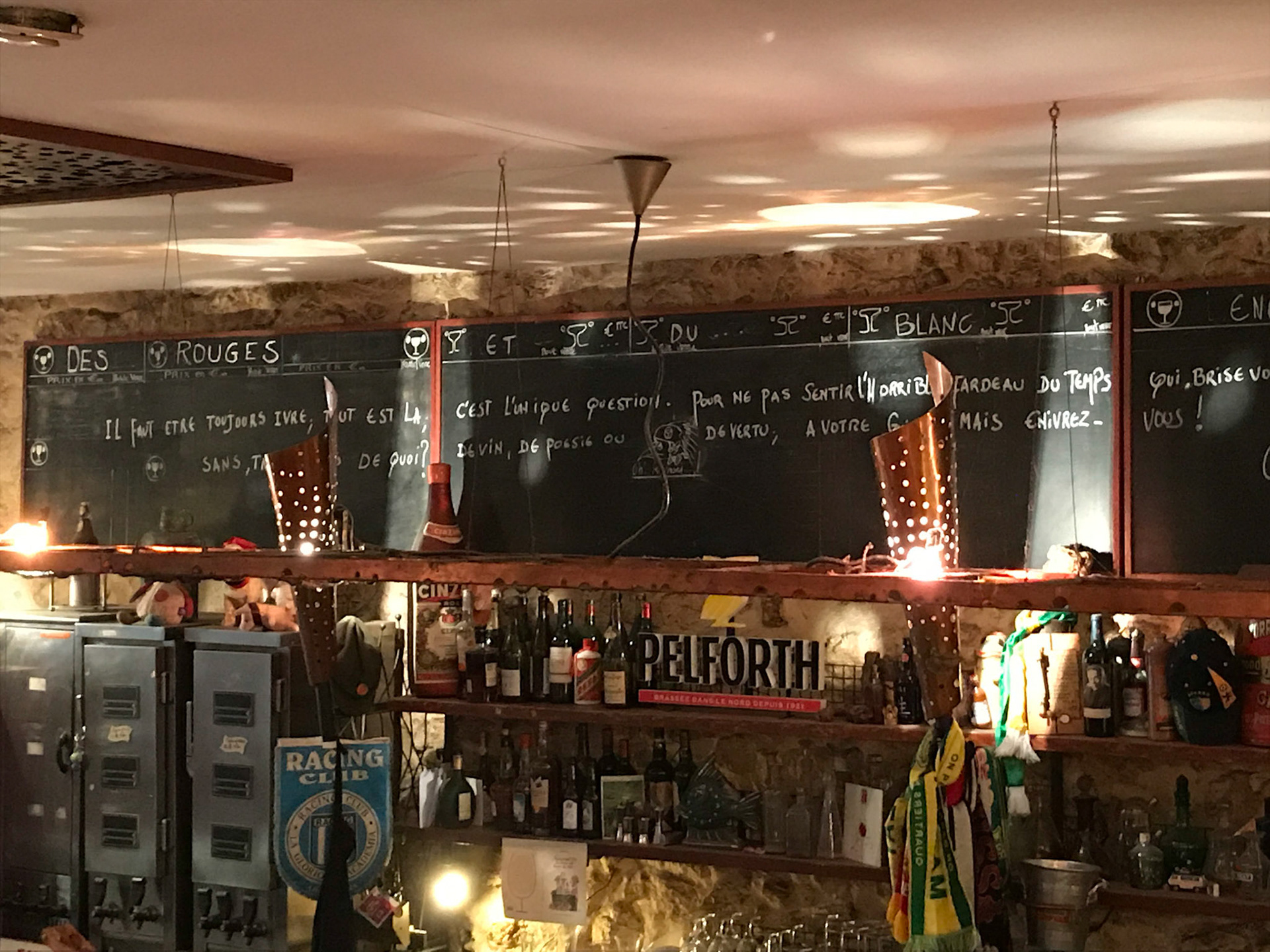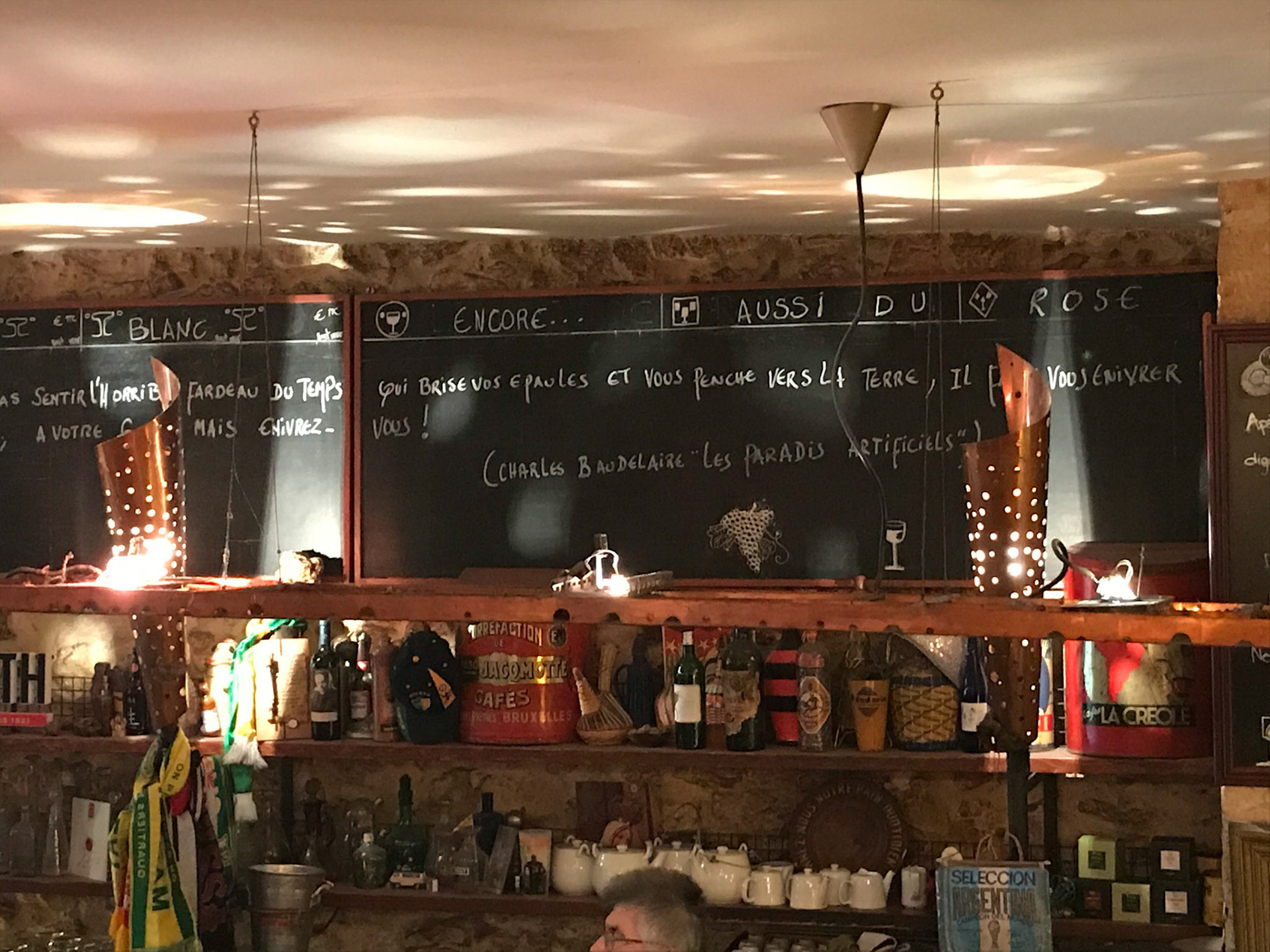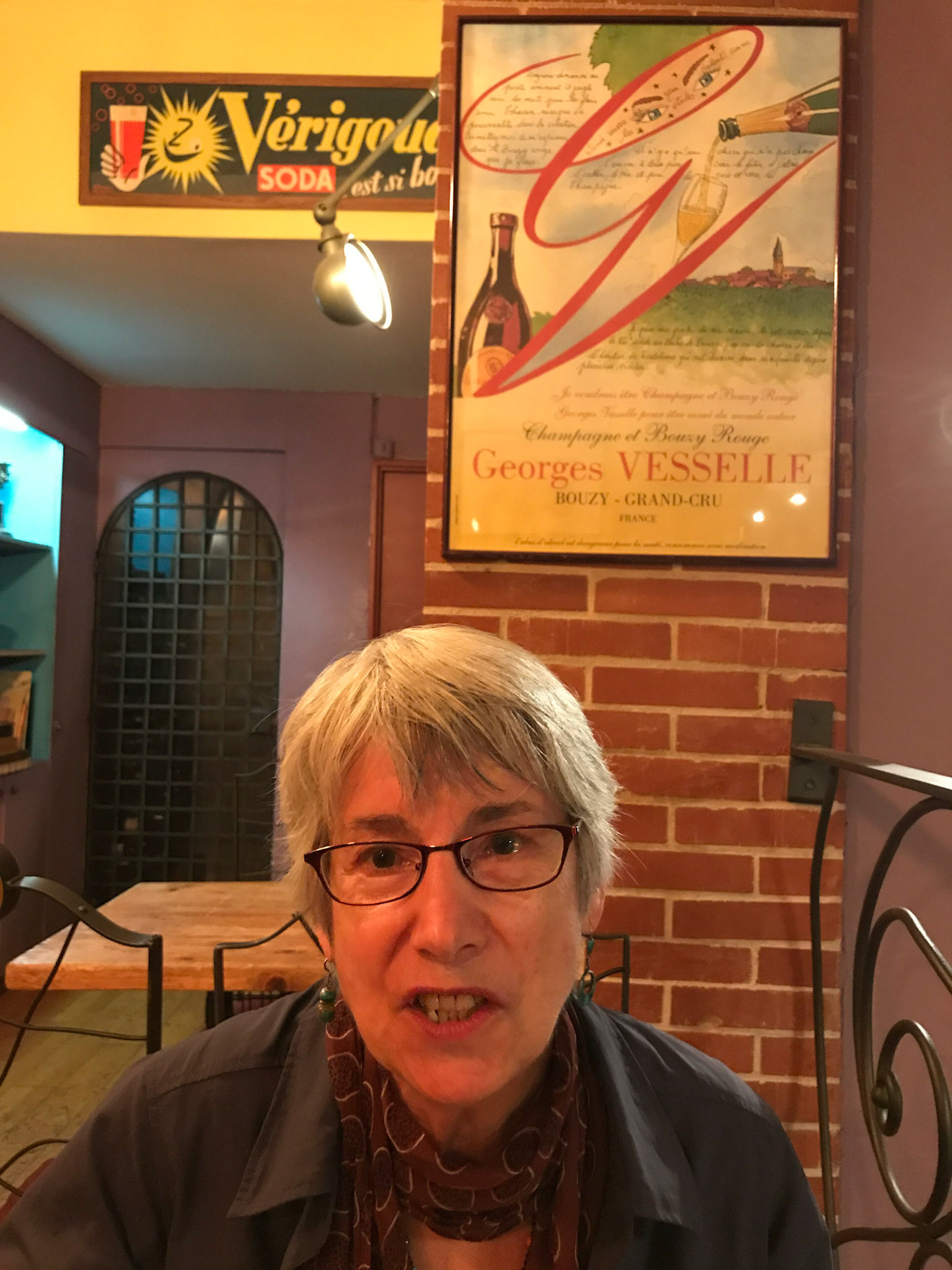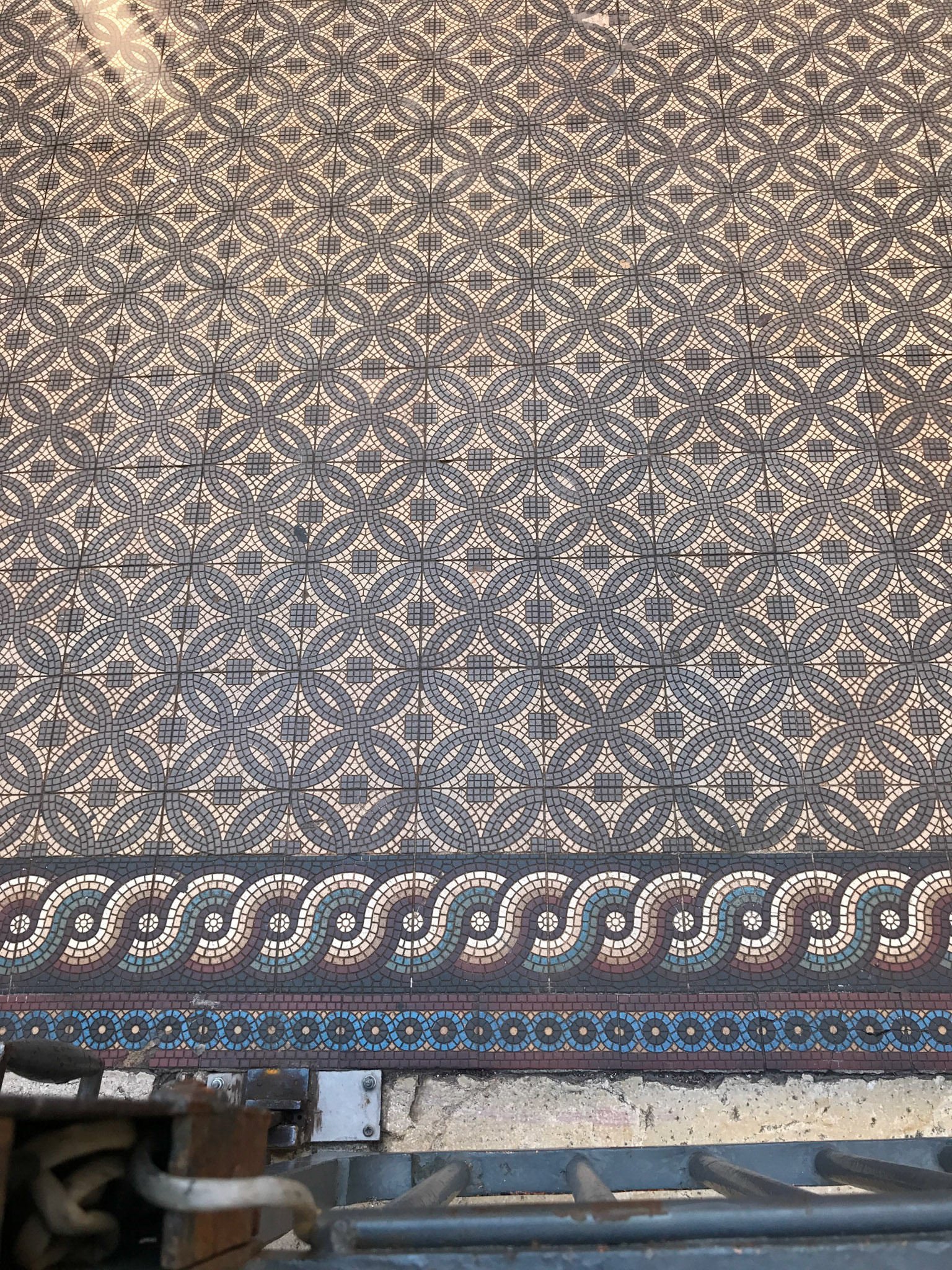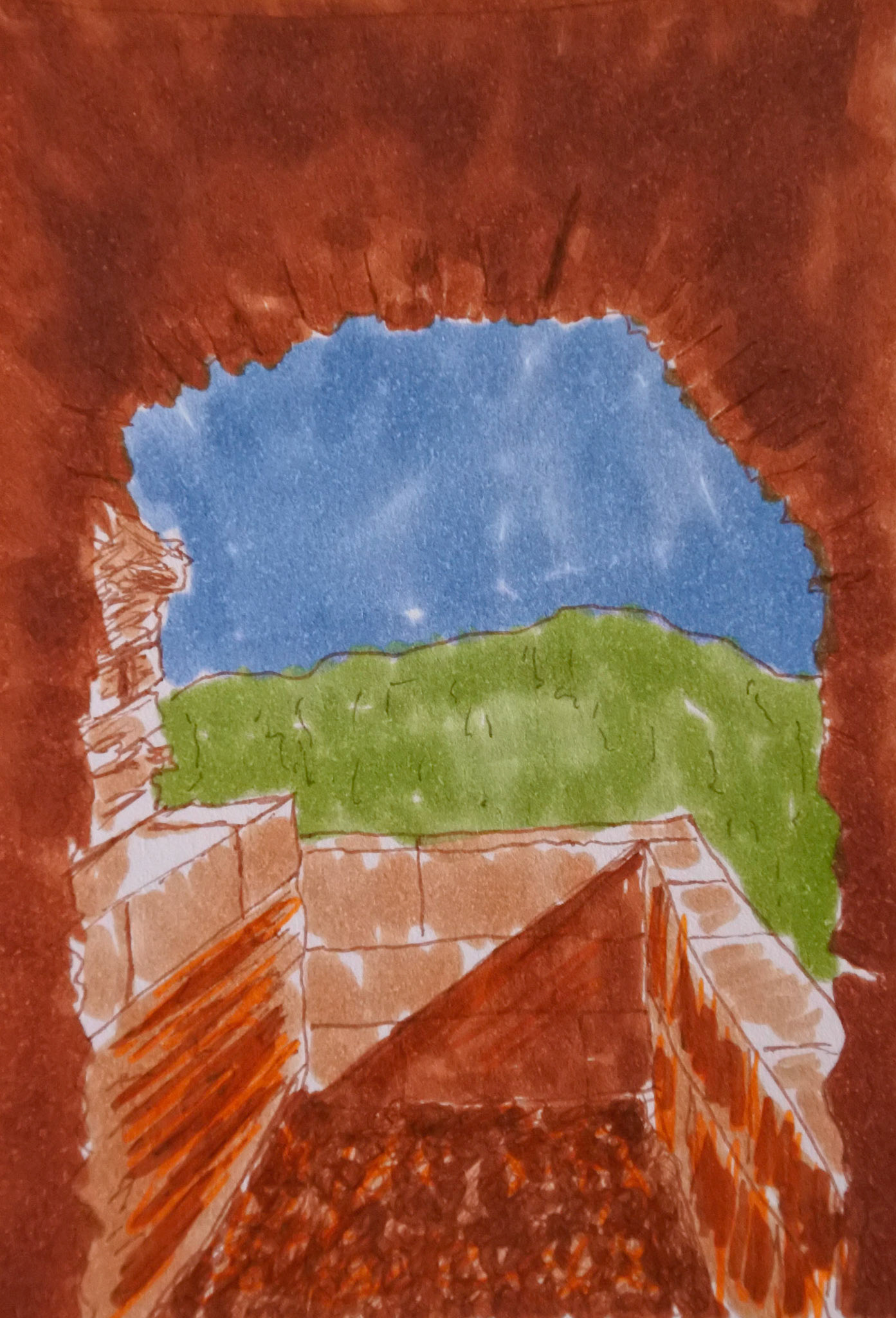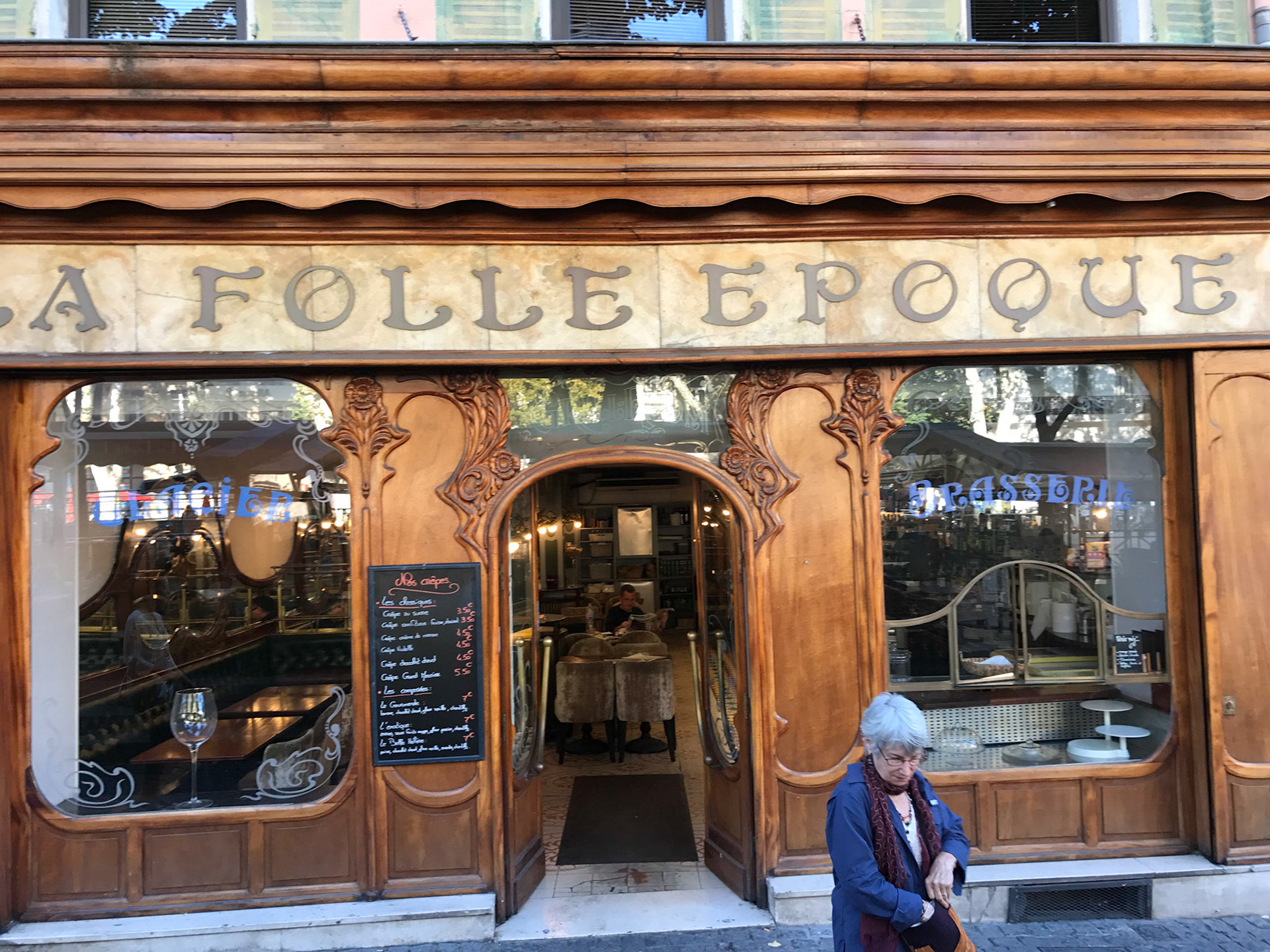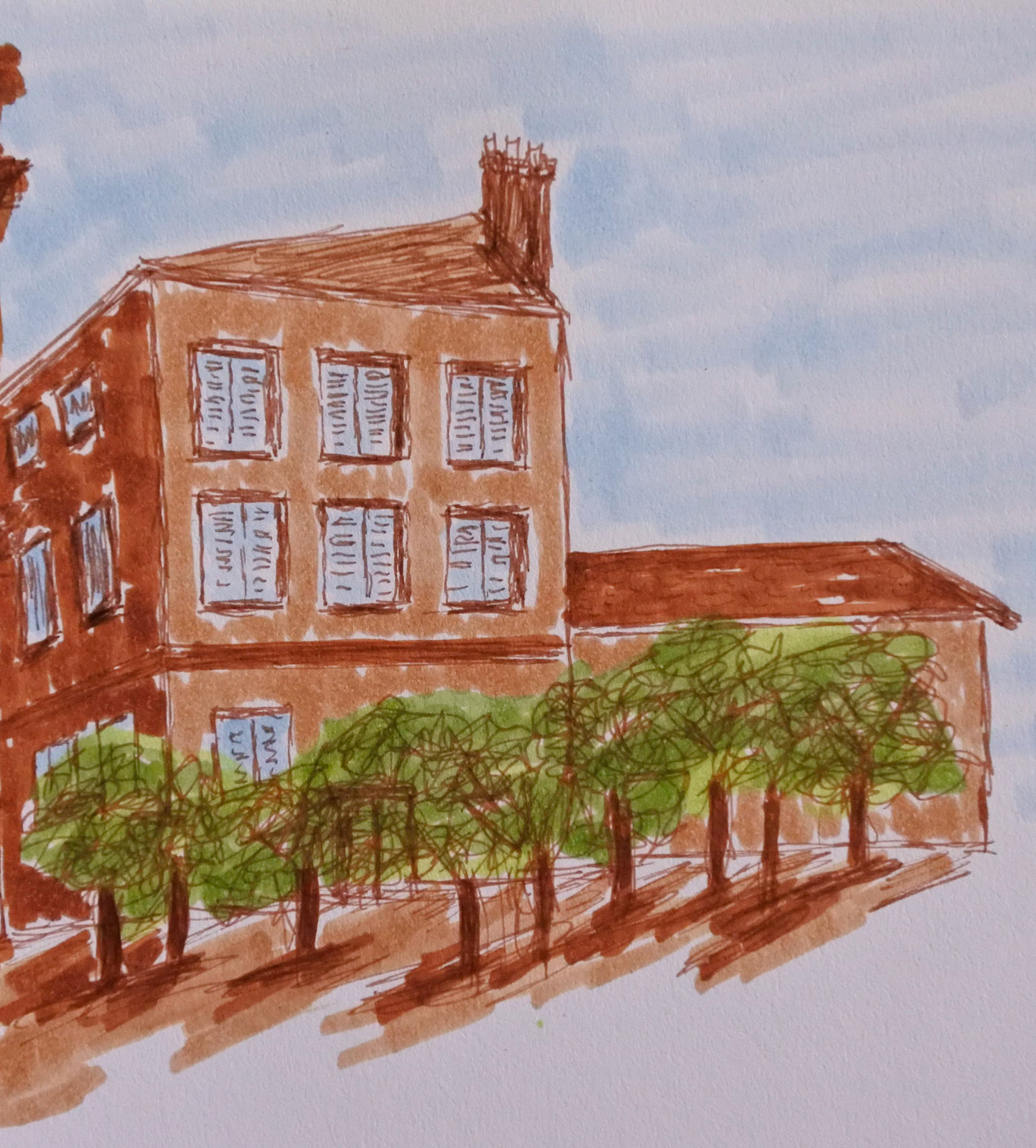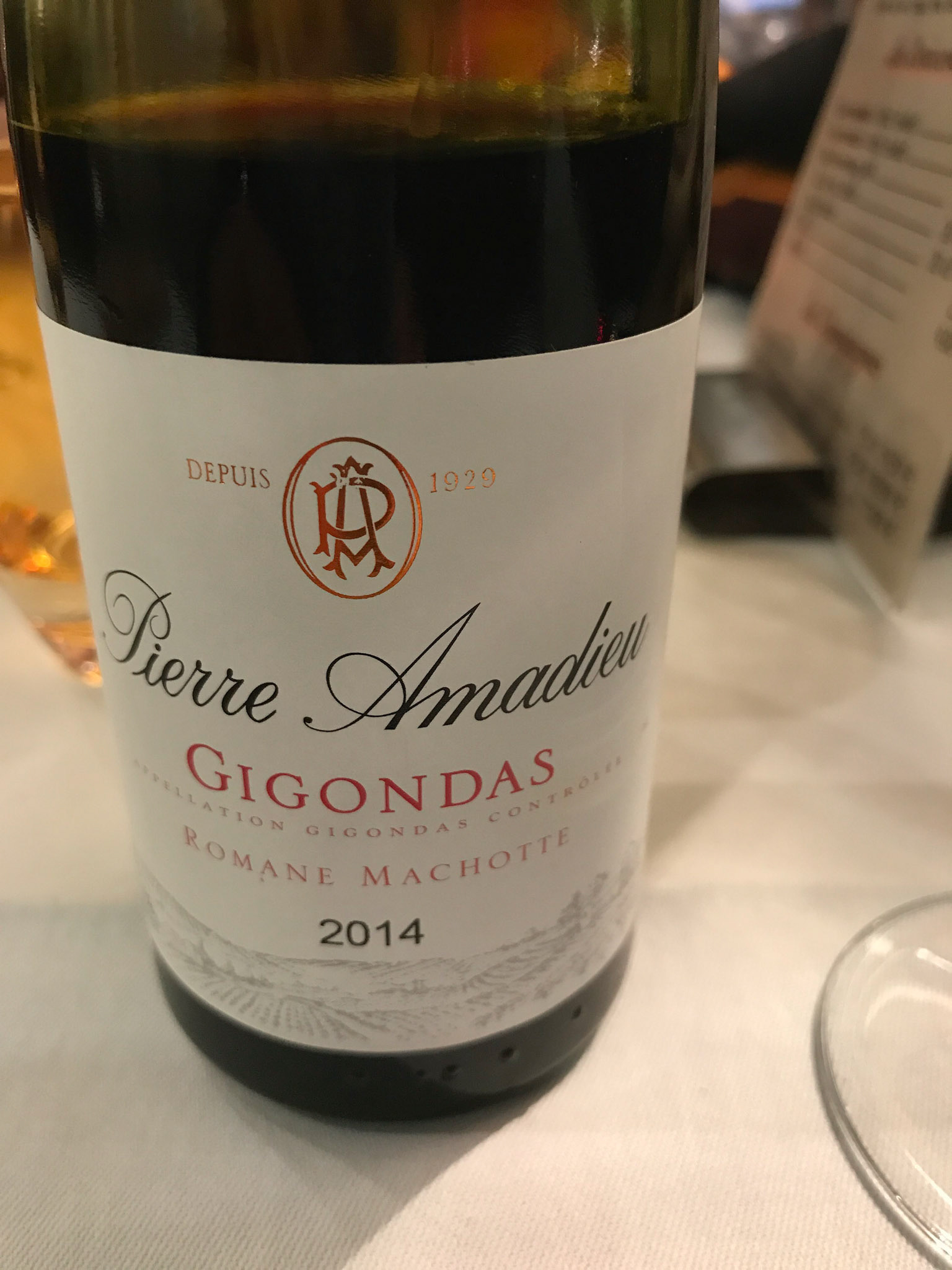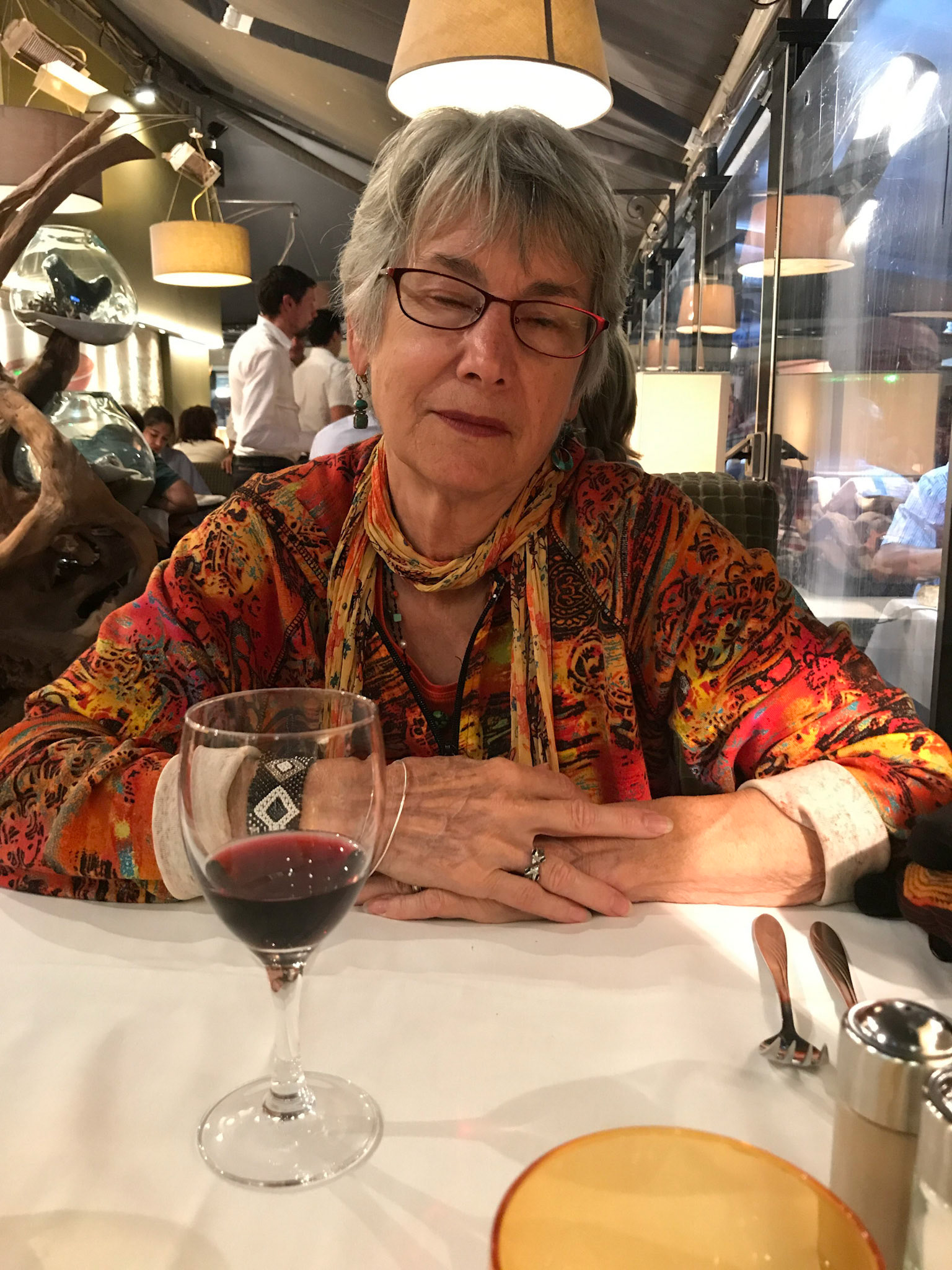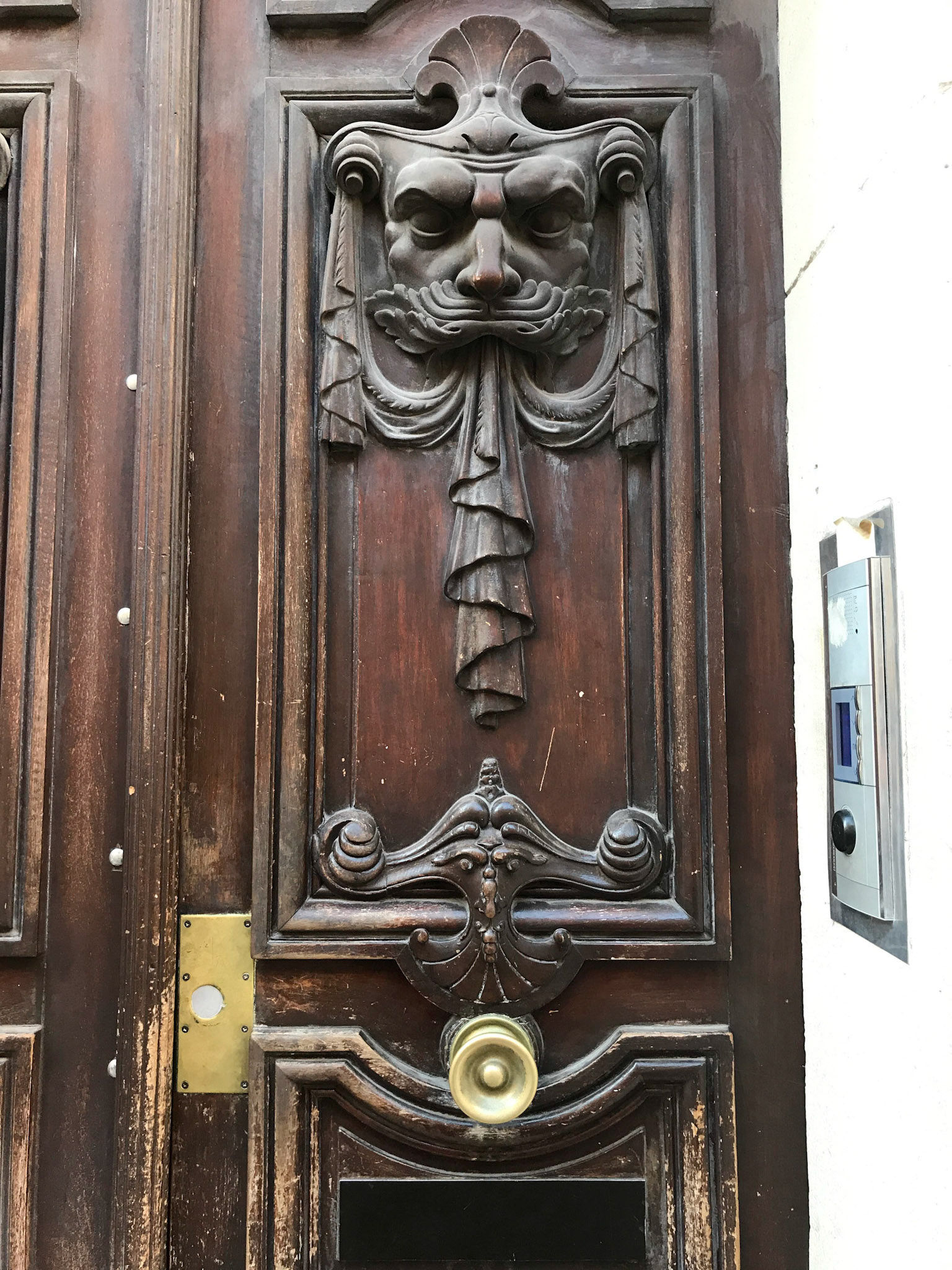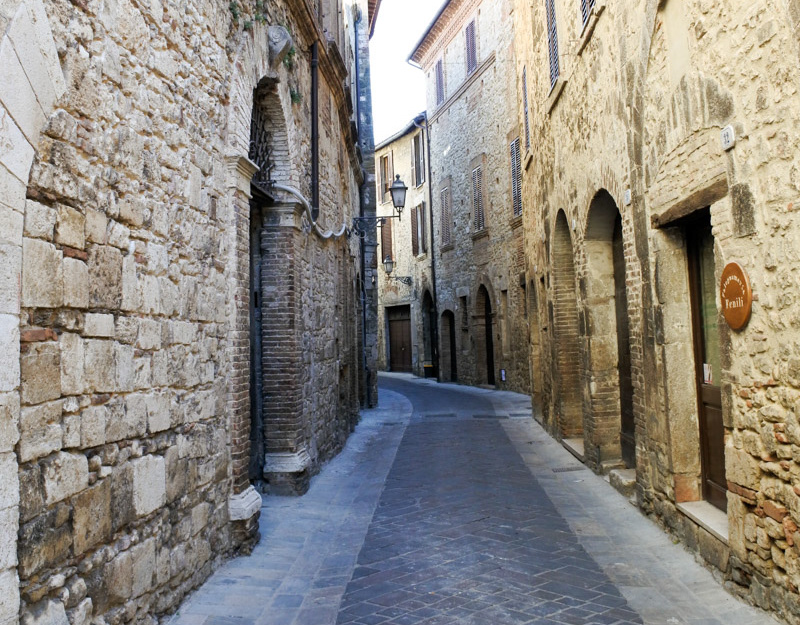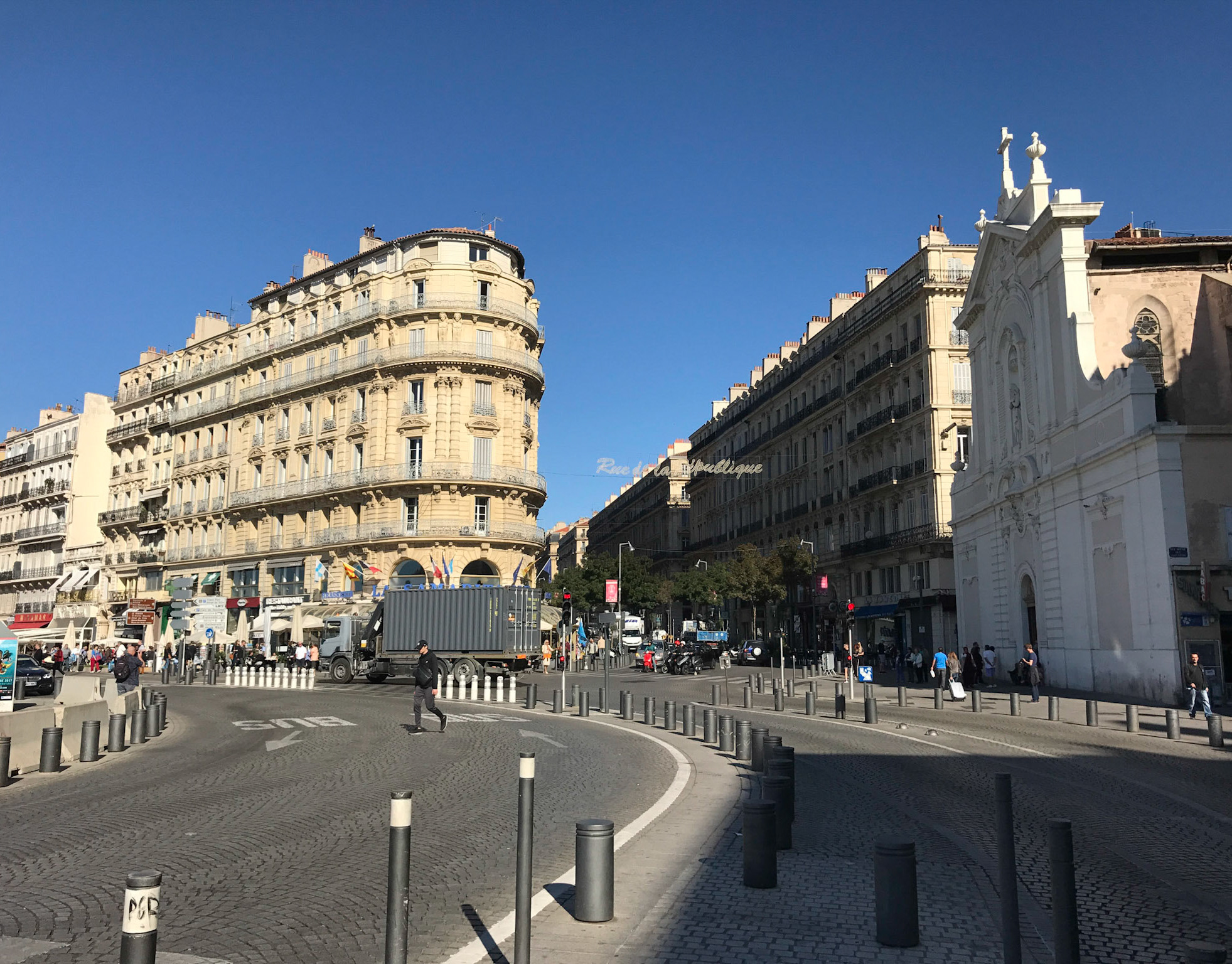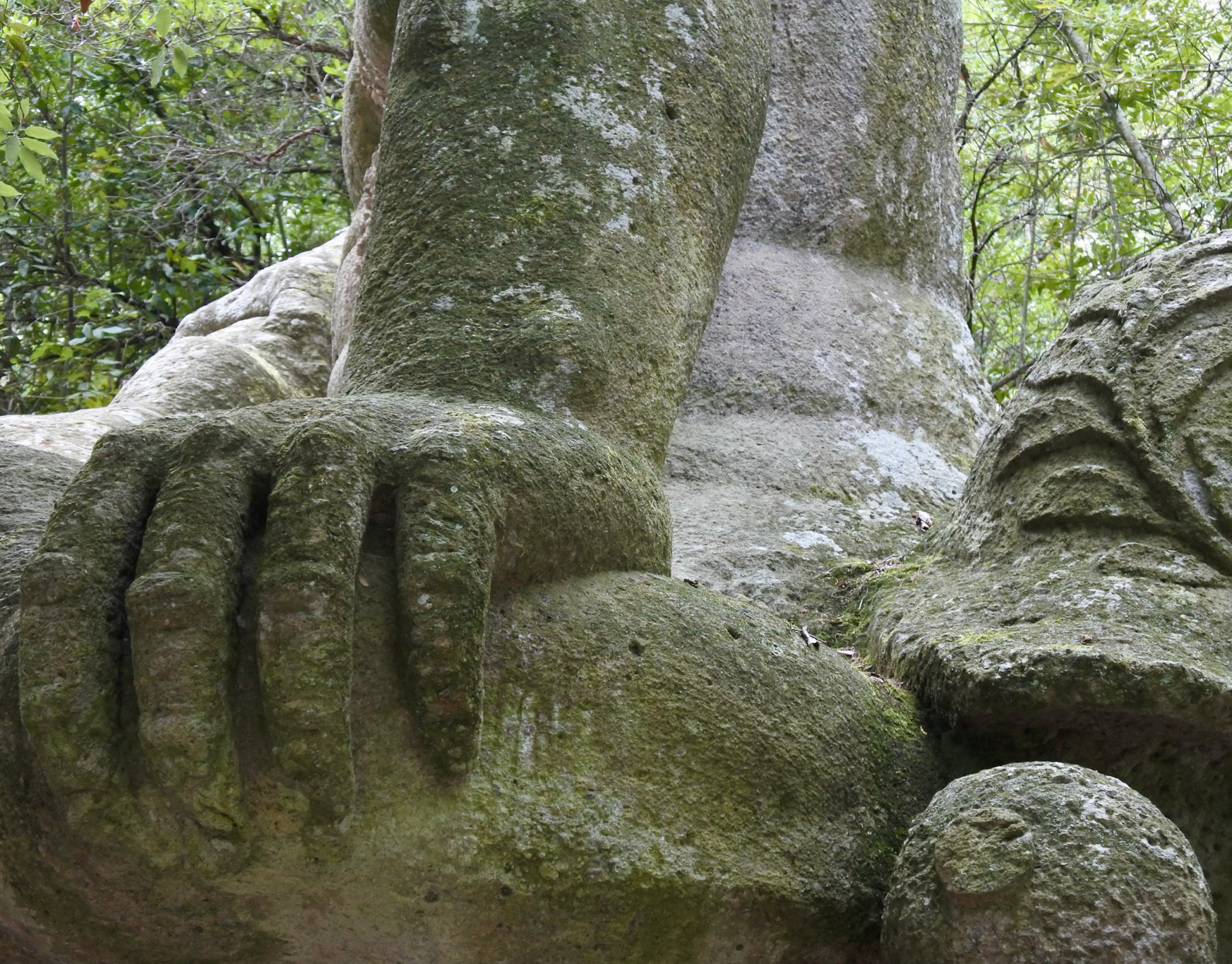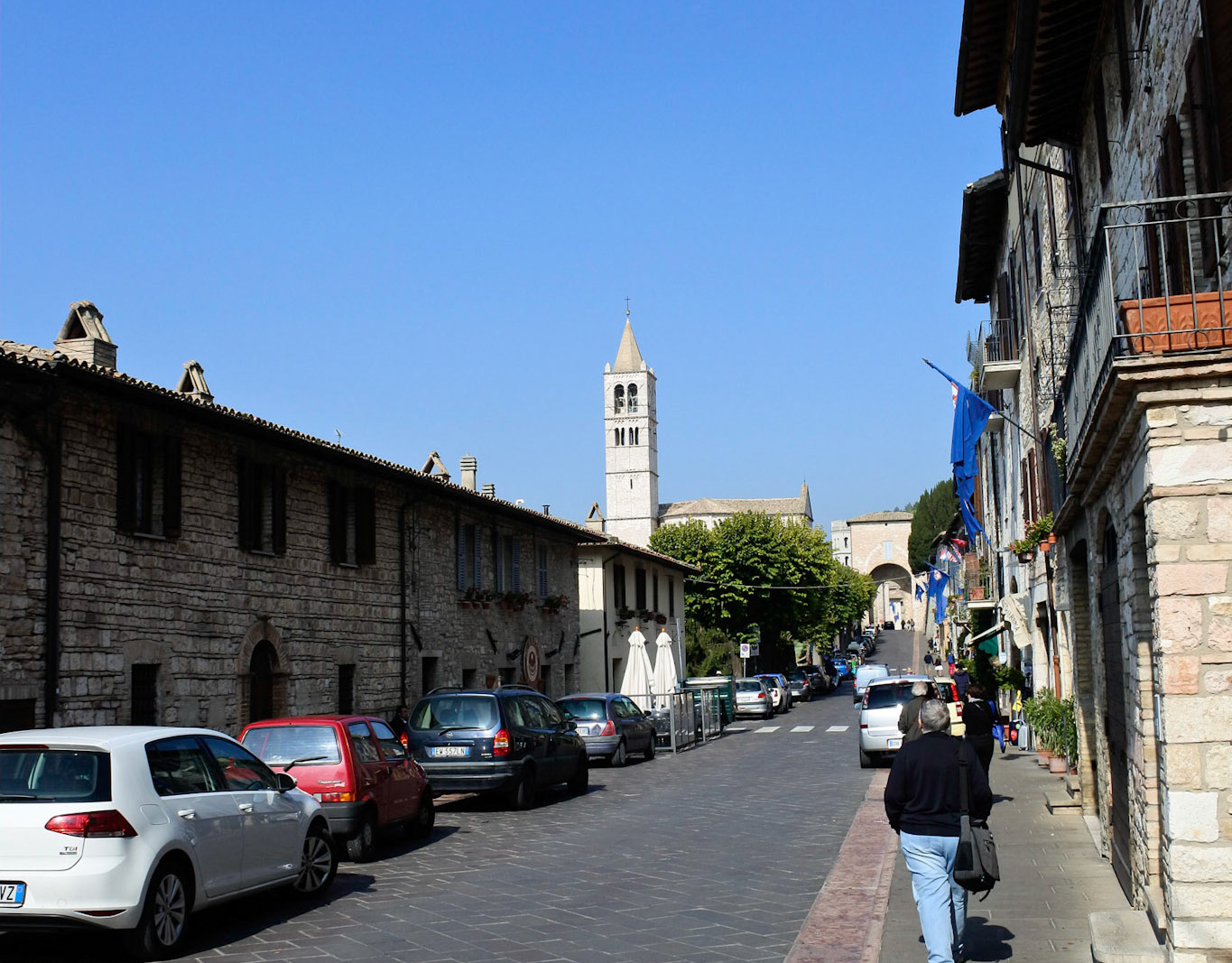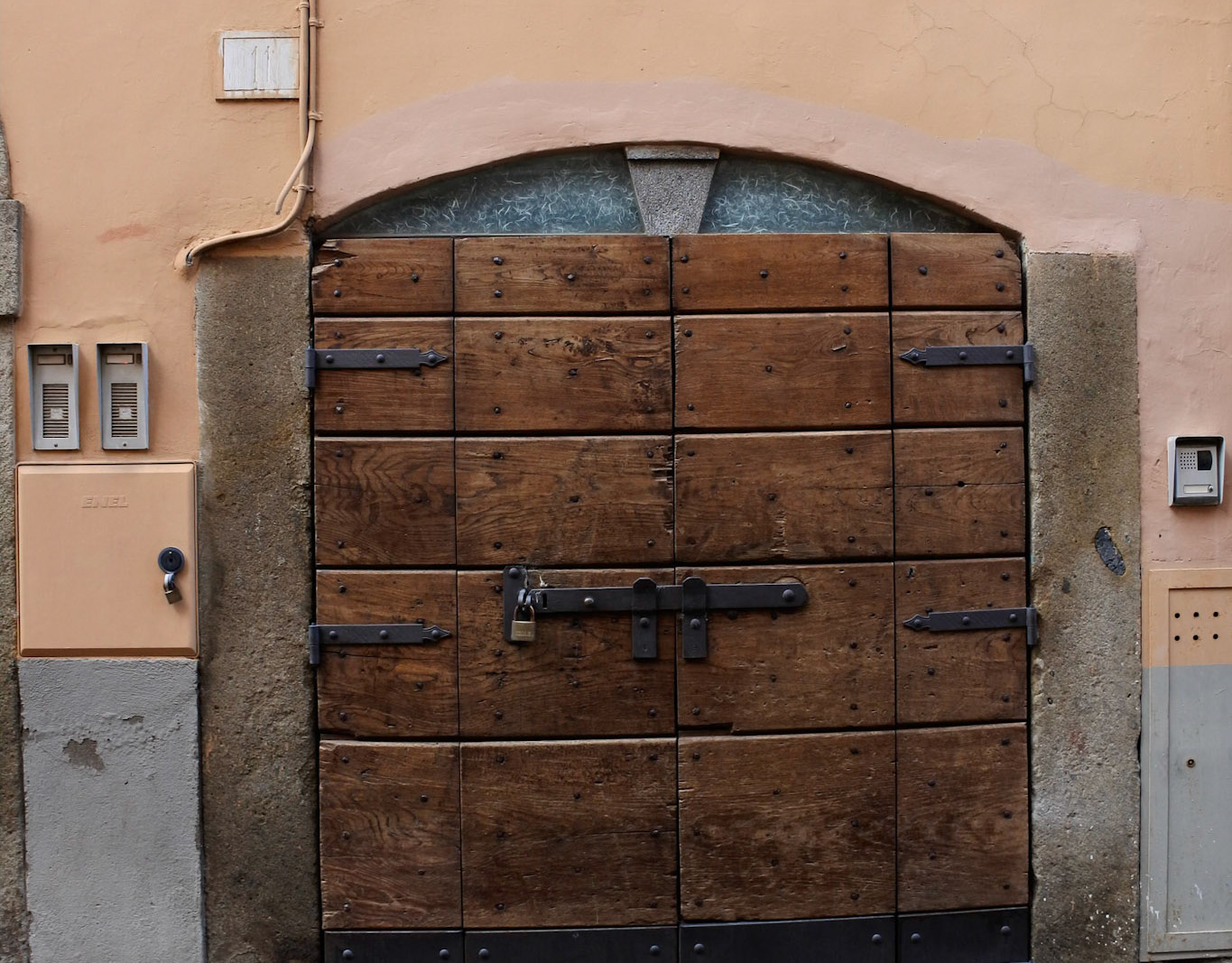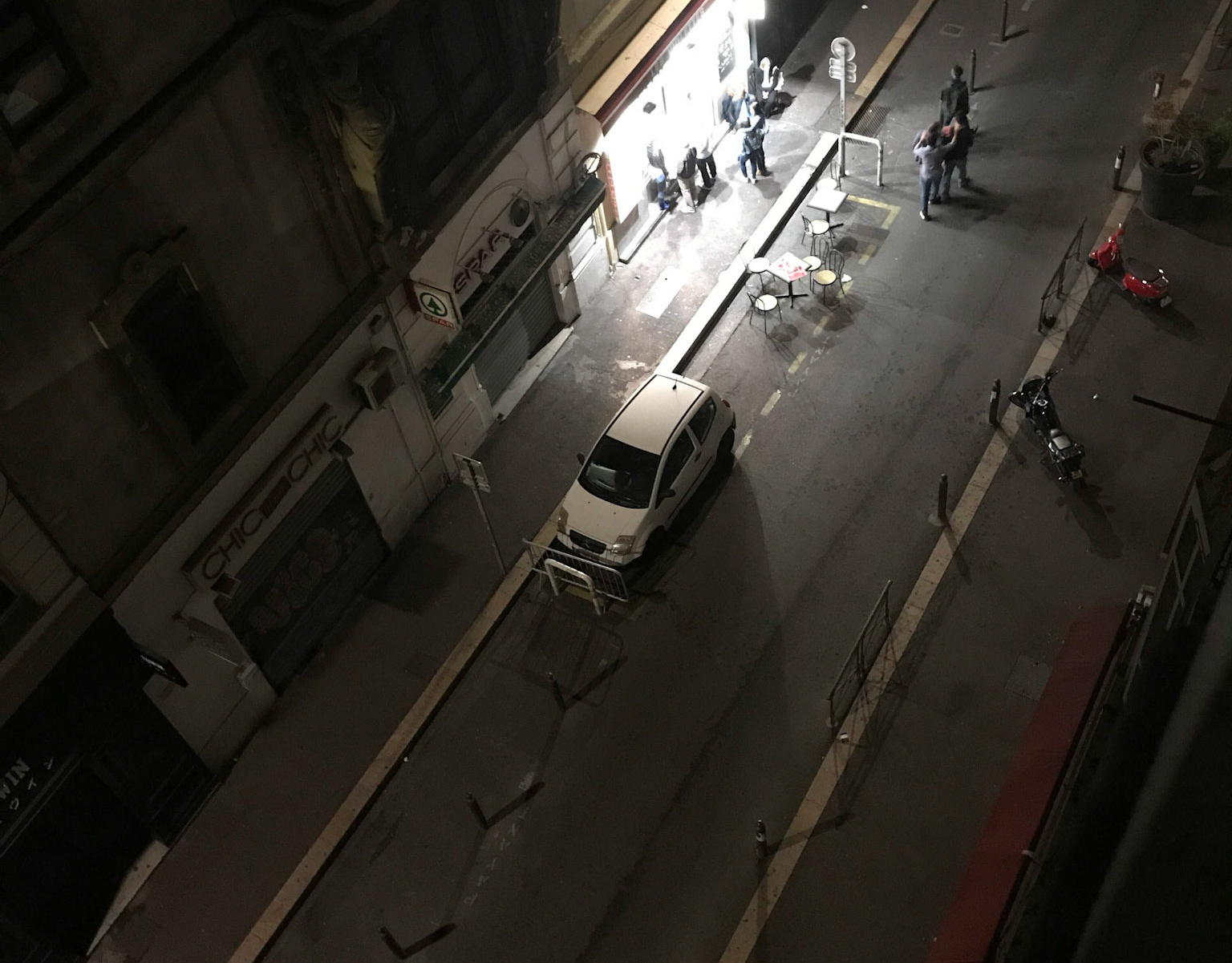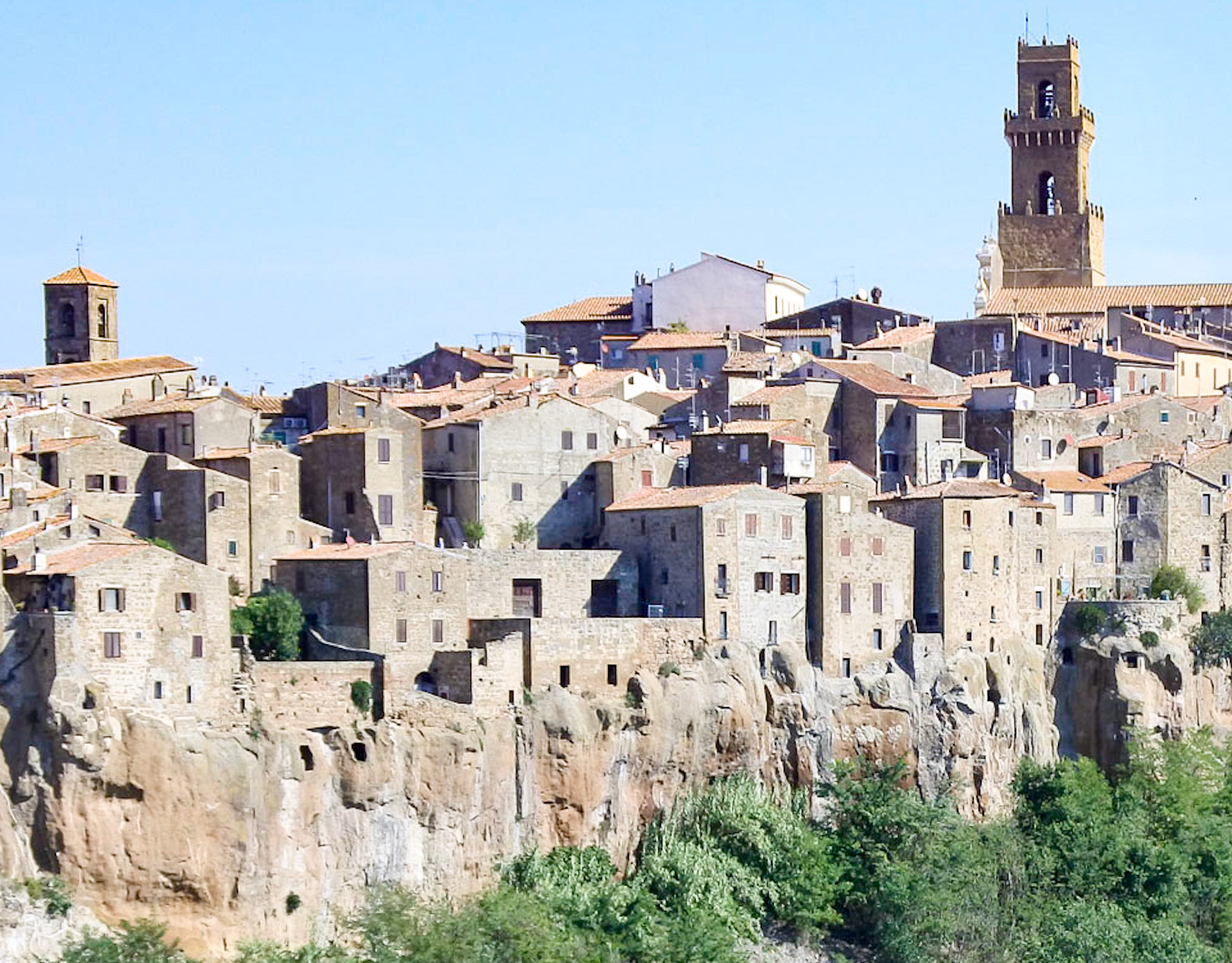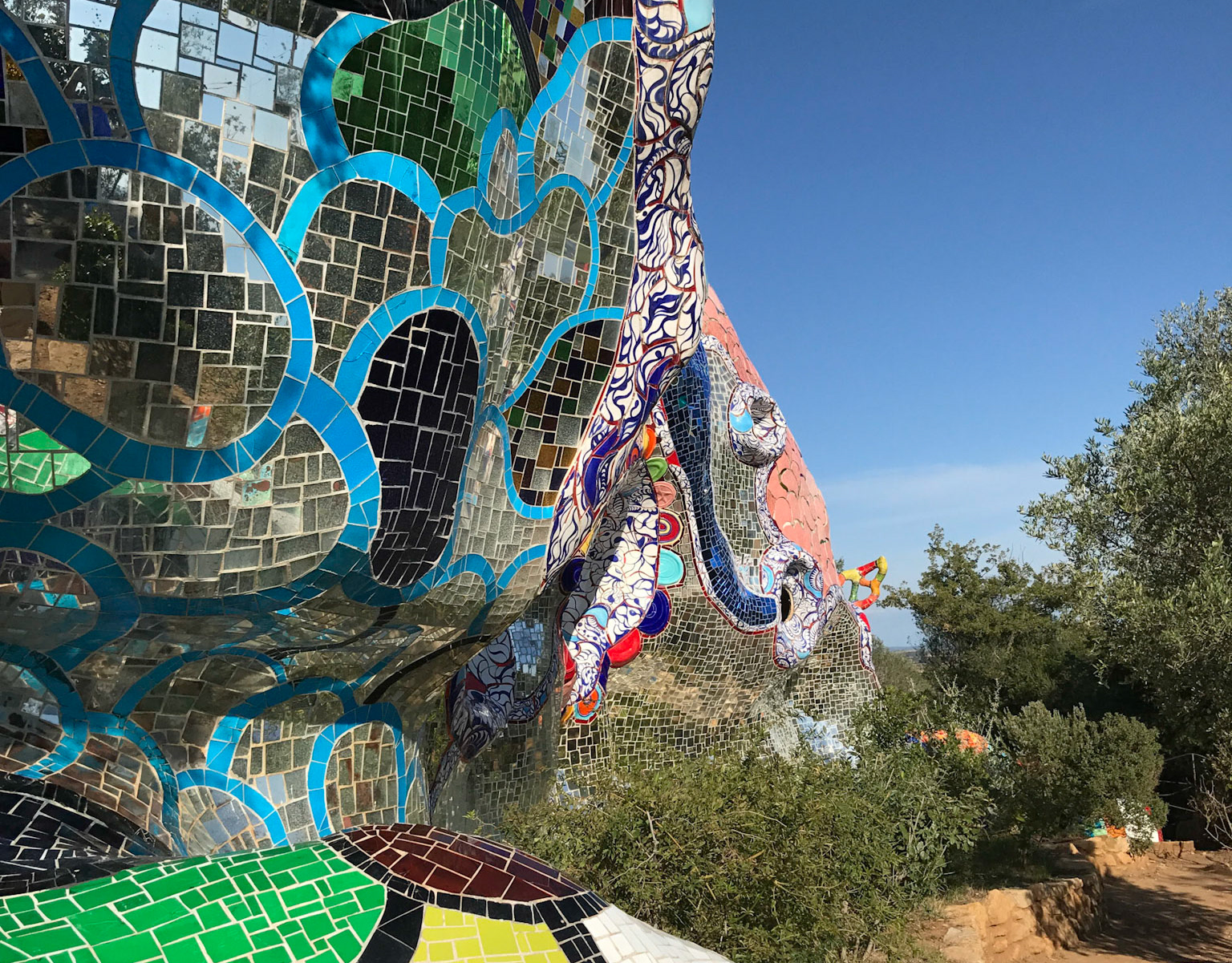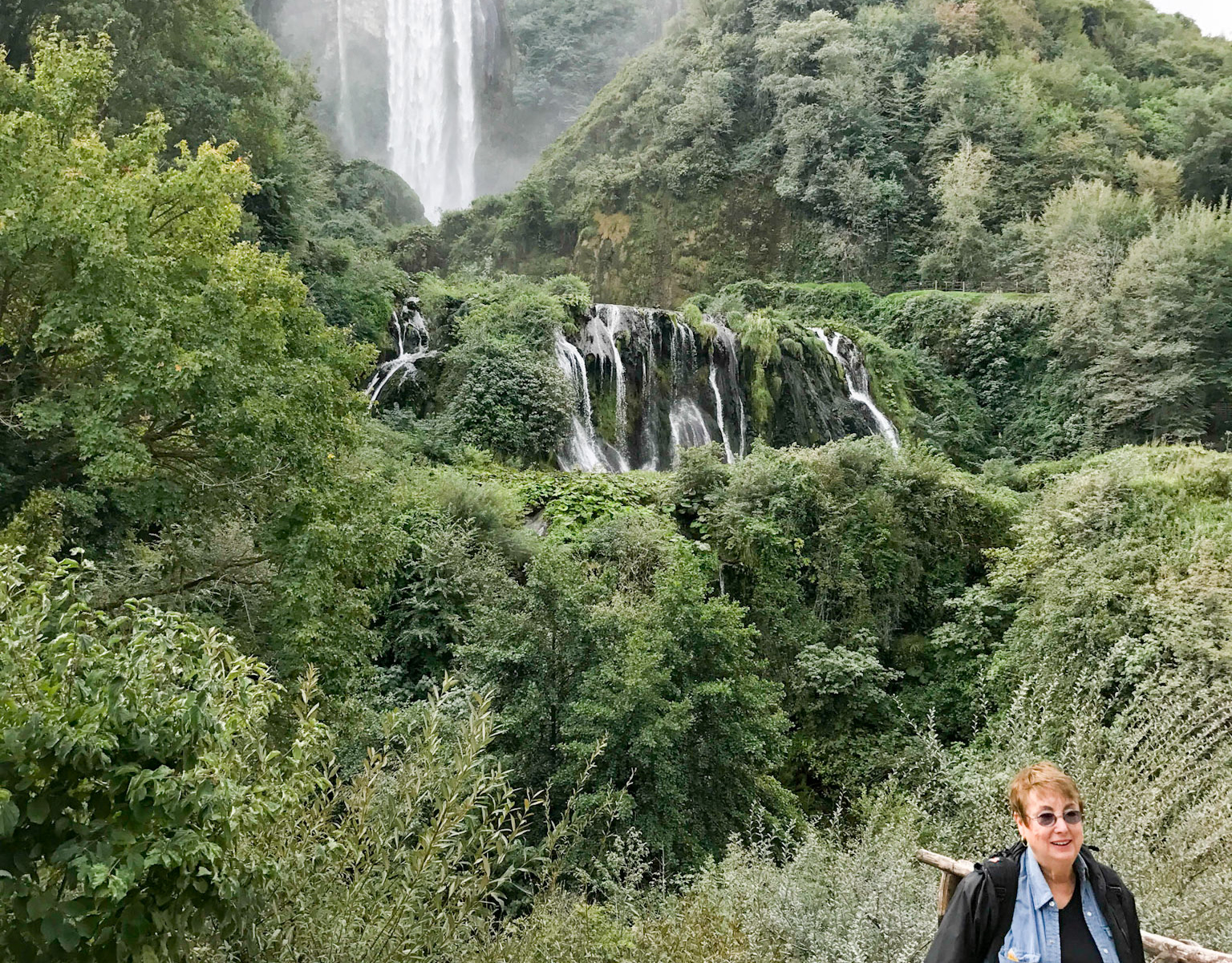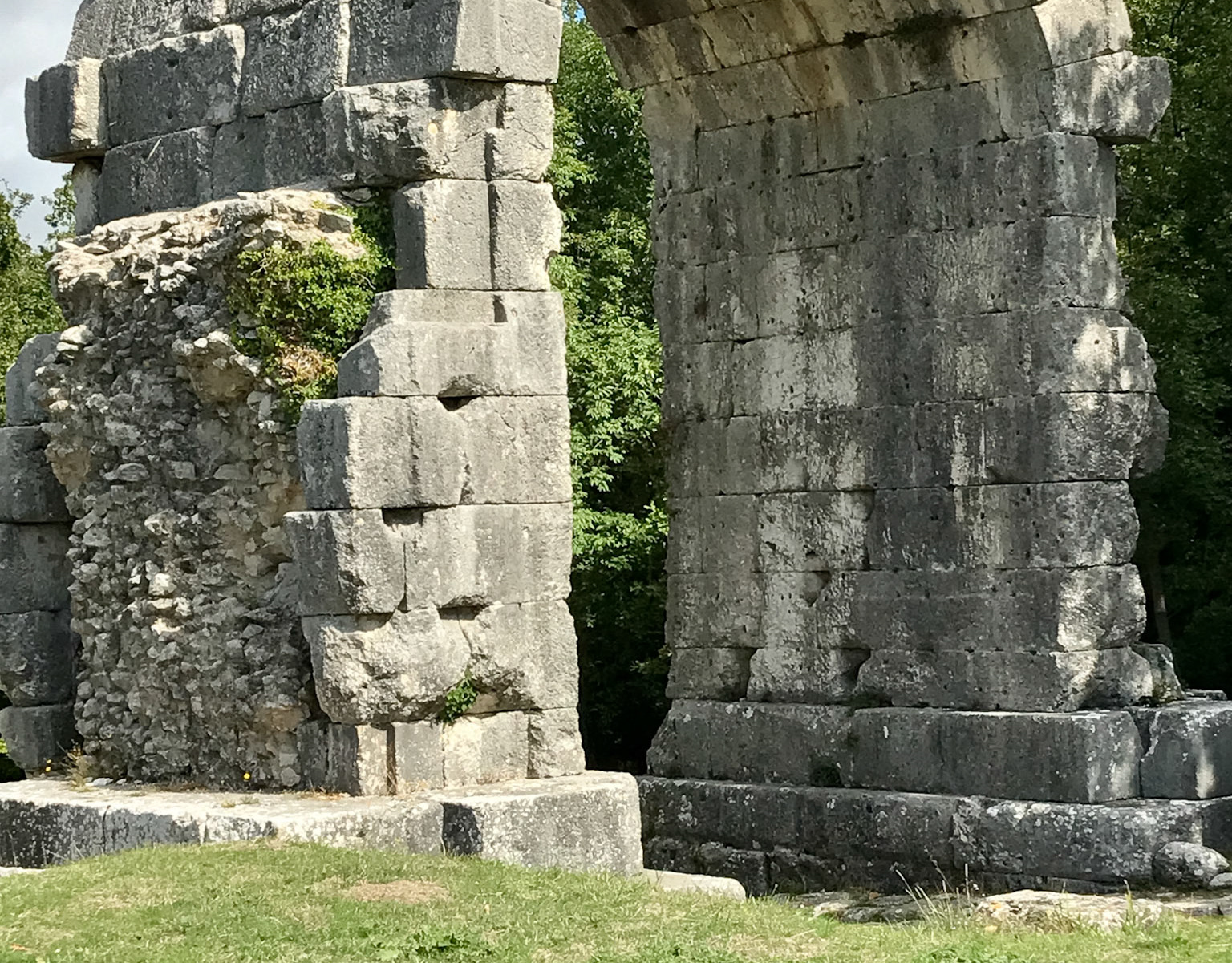Our final full day in Marseille. We were ready for mellow. Actually, we were pretty well fried. The longest walks today would be to the cafe for coffee and then to a bistro for lunch, followed by sketching away the afternoon in another cafe on a plaza with a fountain and shade and a waiter who kept on eye on us but never hassled us all afternoon.
We also needed to think about a final dinner while being in seafood heaven in a place that loves food and wine. This was also a budget question. It worked out.
Packing is always easy, so we were ready to catch our TGV tomorrow noon to Charles de Gaul Airport and start flying home via Frankfurt and Seattle. We really shouldn't have put that route together, but we did.
For today, all was as it should be. Wonderful company, perfect weather, good food, and a fascinating place to watch and wonder.
We tried a nearby bistro for lunch that we hadn't been in. It looked welcoming and we could see a table well inside that might be quiet. The waiter switched to English, though Linny was doing well in French. He felt like chatting, as well as explaining their menu. He'd lived in the US for a time but had returned to Marseille to start this restaurant with two friends.
Above the long bar was an equally long blackboard. A poem in French by Baudelaire was written across its length with line breaks marked. He gave us a rough translation, but a little too rough.
It's a prose poem that appeared in Le Spleen de Paris or Petits poèmes en prose (published posthumously, 1869). The translation I found that I like best is by someone named John Andrews. (https://theampersandblog.wordpress.com/2012/03/29/poetry-enivrez-vous-baudelaire-original-with-translation/).
Enivrez-vous.
Charles Baudelaire (1821–1867).
Charles Baudelaire (1821–1867).
Il faut être toujours ivre. Tout est là: c’est l’unique question.
Pour ne pas sentir l’horrible fardeau du Temps qui brise vos épaules et vous penche vers la terre, il faut vous enivrer sans trêve.
Mais de quoi? De vin, de poésie, ou de vertu, à votre guise. Mais enivrez-vous.
Et si quelquefois, sur les marches d’un palais, sur l’herbe verte d’un fossé, dans la solitude morne de votre chambre, vous vous réveillez, l’ivresse déjà diminuée ou disparue,
demandez au vent, à la vague, à l’étoile, à l’oiseau, à l’horloge, à tout ce qui fuit, à tout ce qui gémit, à tout ce qui roule, à tout ce qui chante, à tout ce qui parle, demandez quelle heure il est;
et le vent, la vague, l’étoile, l’oiseau, l’horloge, vous répondront: “Il est l’heure de s’enivrer!
Pour n’être pas les esclaves martyrisés du Temps, enivrez-vous; enivrez-vous sans cesse! De vin, de poésie ou de vertu, à votre guise.
* * * * *
Drink.
Always be drunk. Therein lies everything: it’s all that matters.
So as not to feel the dread burden of Time breaking your shoulders and crushing you to the earth, never stop drinking.
But what? Whether wine, poetry or virtue, the choice is yours. Whatever: get drunk.
And if sometimes, on the palace steps, in the gutter’s green grass, or in the maudlin solitude of your room, you wake up, and the drunken haze has dwindled or gone,
then ask the wind, the wave, the star, the bird, the clock; ask everything that flees, everything that groans, everything that moves, everything that sings, everything that speaks: ask them what time it is;
and the wind, the wave, the star, the bird, and the clock will all reply:
“It is the drinking hour."
To escape the fate of those tormented slaves of Time, get drunk.
Drink deep, never ceasing.
Whether wine, poetry, or virtue, the choice is yours.
